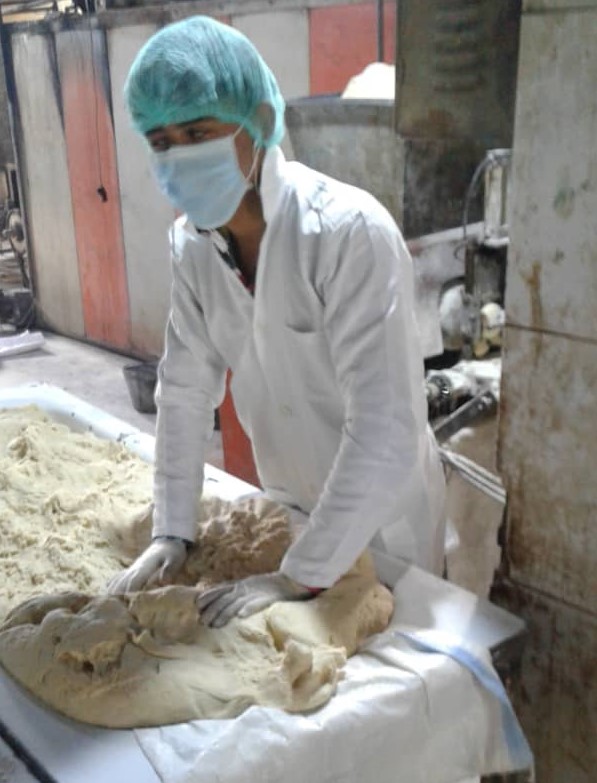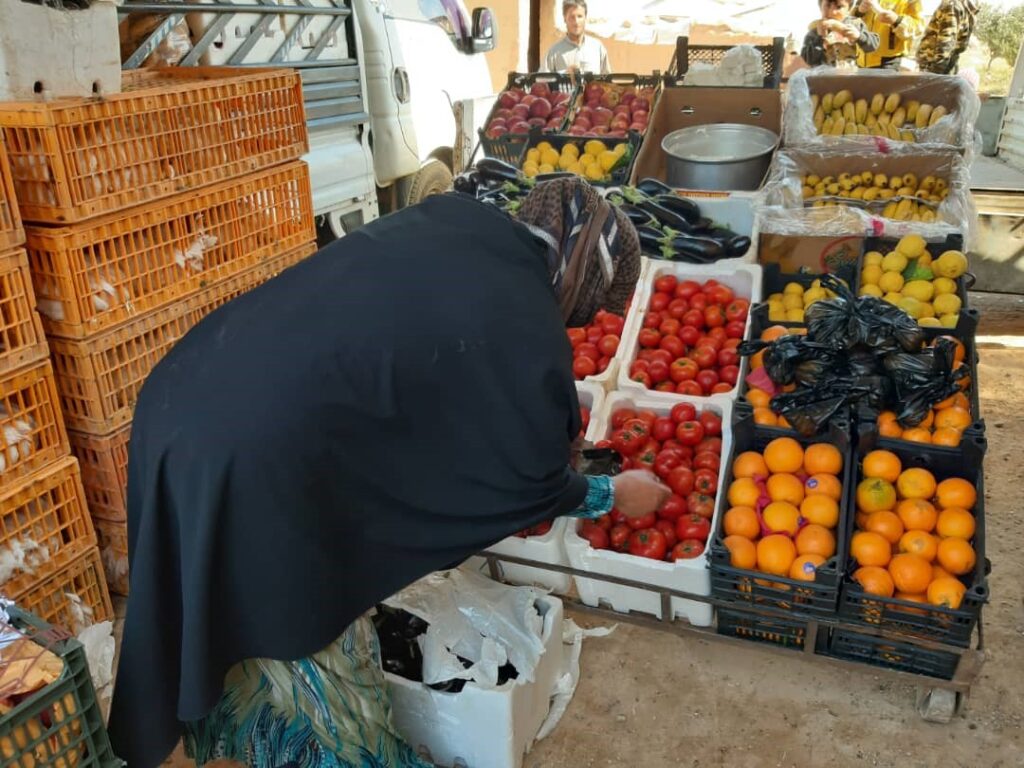For four years, the USAID-funded Syria Emergency Food Security Program (SEFSP) has been improving household- and community-level food security for vulnerable communities in northeast Syria while simultaneously promoting early economic and agricultural recovery in the region. Activities range from bread delivery and food voucher distribution to agricultural training and support to farmers.
“The uniqueness of this program lies not only in the direct in-kind humanitarian assistance but also in the early recovery activities that provide support through agricultural activities,” Jawad Ullah, the SEFSP Program Manager, explained.

Bakery worker making bread for distribution
With bread making up approximately 76% of the Syrian diet, Blumont provides high-quality, locally procured flour to twelve bakeries. The bread is then bought from the bakery workers at market price and distributed daily to eight camps and other informal shelters, free-of-charge. Bread is also distributed to host communities at subsidized prices through 150 distribution points. In 2019 alone, 3.1 billion loaves of bread were distributed.
“Bread is the substance through which we live, we can lose anything except bread,” Ibrahim, a resident in Washokani Camp – one of the SEFSP distribution sites – said.
“I cannot describe the extent of difficulties we would face if Blumont stopped delivering bread. I have been living in this camp for three years now and they have not stopped giving us bread since day one, despite the many challenges and risks they sometimes face,” Hussein, another internally displaced person, said.
Bread distribution not only benefits those receiving it, but the program also creates opportunities for people working to build a livelihood.
“I was unemployed, but once Blumont began delivering bread to various distribution points, I became a distributor with them,” Mohammad, a bread distribution agent in Raqqa, said. “Now, I have the income to buy food for myself and my family.”

Woman exchanges her food voucher for some vegetables
In addition to daily bread distribution, Blumont distributes supplementary food vouchers to support more than 7,920 food-insecure people living outside the camps. Monthly distribution allows families to exchange their vouchers for dairy products, meat and chicken, fruits, and vegetables.
The team is also working with communities to implement sustainable solutions that help families to become more self-reliant.
Since 2017, vulnerable households in rural areas have been provided with agricultural training and materials – winter and summer seeds, water tanks, and drip irrigation systems – to plant, grow, and sustain their own home vegetable gardens. These gardens improve families’ access to healthy foods while providing them with a source of income. To date, 5,650 beneficiaries have benefitted directly from their own home vegetable gardens, while countless others have benefitted from these products at market.

“The vegetable garden helped my family become self-sufficient by giving us fresh vegetables to eat and reducing our food expenses. I also sell any surplus in our vegetable harvest,” said Ibrahim, a farmer from Deir ez-Zor who relies on the garden to feed his eight children.
Our team also supports small-hold cereal farmers in Al-Hasakah to promote the recovery of agricultural livelihoods in the region. The Turkish incursion in October 2019 and the outbreak of COVID-19 in early 2020 put the team behind schedule, leaving them with a small two-week window before the end of the growing season. Despite this challenge, 450 farmers successfully cultivated 1,200 hectares of land for wheat and barley, with the first harvest of the season completed less than a week ago.

“We managed to cultivate 1,200 hectares of land in the most critical moment when we only had two weeks to do it or lose the planting season,” Jawad recollects. “Together, we did it and got a bumper crop for wheat and barley. When the harvesting started, that was the proudest moment for me.”



